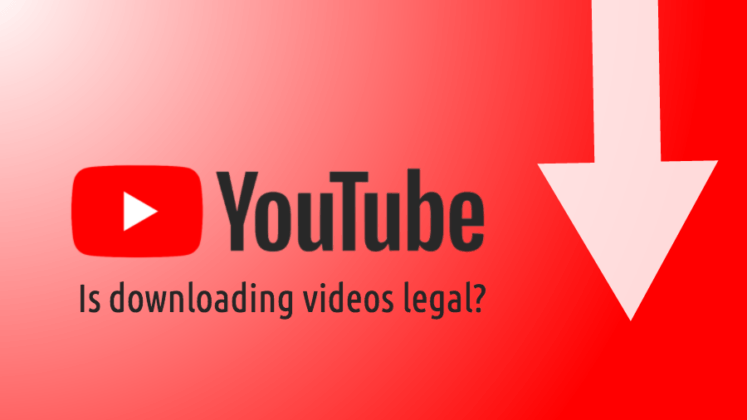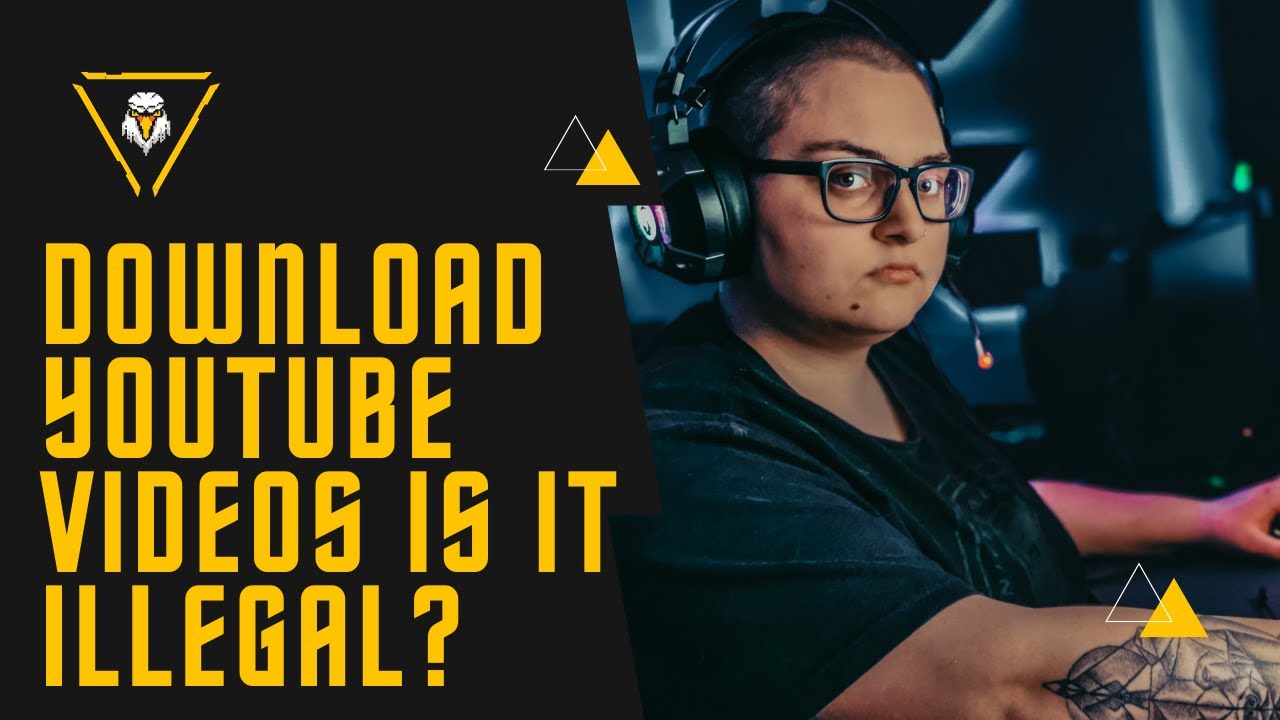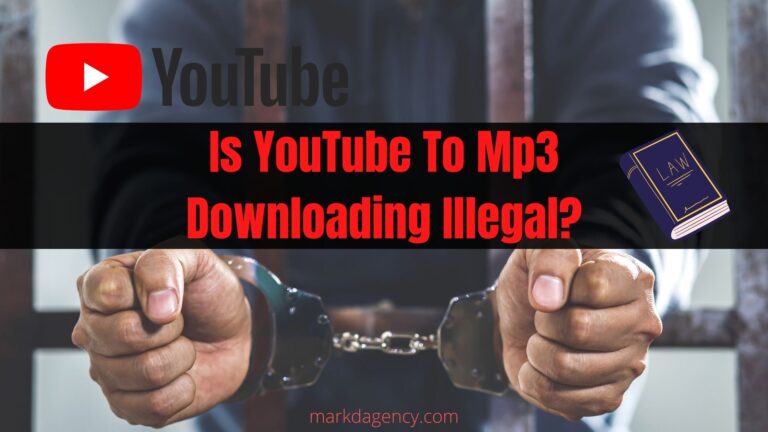If you've ever found yourself wanting to enjoy your favorite music or podcasts offline, you've probably considered converting YouTube videos into MP3 format. It's a common practice that many users engage in, but it raises questions about legality and the rights of content creators. In this section, we'll explore what video conversion entails, the tools and methods commonly used, and why individuals choose to convert YouTube videos. Understanding this process will set the stage for a deeper discussion about the implications regarding copyright and legality.
Understanding Copyright Law

Copyright law is a legal framework designed to protect the creative rights of artists, authors, and creators. It grants the original content creator exclusive rights to reproduce, distribute, and display their work. When it comes to YouTube videos, several aspects are essential to grasp:
- Ownership of Content: Every video uploaded to YouTube is owned by someone—usually the uploader, but it can also be large studios or publishing companies. This means they have the exclusive right to determine how their content is used.
- Terms of Service: YouTube’s terms of service explicitly prohibit downloading videos without permission unless a download button or link is provided by the platform itself. Converting videos to MP3 falls under this restriction.
- Fair Use Defense: In some circumstances, you might argue fair use if you’re using the content for criticism, comment, news reporting, teaching, scholarship, or research. However, fair use is subjective and often leads to legal battles.
Moreover, the specific laws regarding copyright can vary widely from one country to another. For instance, what might be permissible in one place could be considered illegal in another.
To sum it up: before hitting that "convert" button on your favorite YouTube video, it’s crucial to understand the potential legal ramifications. Many people believe that if they’re using the content for personal use, they're safe, but copyright infringement can occur whether you share it or not. So, it's better to be informed and cautious!
Also Read This: Easy Ways to Download from IMDB Online Fast and Free
The Role of YouTube's Terms of Service

YouTube's Terms of Service play a crucial role in defining what users can and cannot do with the content found on the platform. When you sign up for YouTube, you agree to these terms, which clearly outline the legal restrictions regarding the use of video and audio content. These rules are in place primarily to protect the rights of content creators and ensure they receive fair compensation for their work.
One key aspect of the Terms of Service is the prohibition against downloading content without permission. This includes converting YouTube videos to MP3 files. YouTube specifically states that users are not allowed to download or extract any audio or video unless a download button or link is explicitly provided by
It's essential to keep these terms in mind, as violating them can lead to consequences such as losing your access to YouTube or facing other legal repercussions from content owners. Here’s a brief summary of the main points related to YouTube's Terms of Service:
- No Unauthorized Downloads: Users are prohibited from downloading content without explicit permission.
- Content Ownership: The rights of content creators must be respected.
- Consequences: Violating these terms can result in penalties from YouTube.
Also Read This: Investigating the Most Influential Tech Companies Reshaping the Industry in the USA
When Is It Legal to Convert YouTube Videos to MP3?

This is where it gets a bit tricky. While YouTube's Terms of Service generally prohibit unauthorized downloading or converting of videos, there are specific situations where it may be considered legal. Here are some instances to keep in mind:
- Creative Commons Licenses: Some videos are uploaded under Creative Commons licenses, allowing users to download and use them legally. Always double-check the license before downloading.
- Public Domain Content: If the content is in the public domain and free to use, converting it to MP3 could be legal.
- Permission from the Creator: If you ask the content creator for permission to convert their video, and they grant it, you should be in the clear.
- Personal Use and Fair Use: If you are using the content strictly for personal purposes and not distributing it commercially, you might navigate into fair use territory. However, this can often be a gray area and may vary based on jurisdiction.
It’s essential to remember that legality can vary based on where you live and the specific laws set in your country. So, doing a little research on the laws surrounding copyright and fair use in your area is always a good idea! If you're ever in doubt, it might be wise to err on the side of caution and avoid converting YouTube videos to MP3 altogether.
Also Read This: How Much Money Can You Earn from 10 Million Views on YouTube
Potential Legal Consequences of Illegal Conversion
When it comes to converting YouTube videos to MP3 format, legality is a significant concern. Many users may not realize that doing so without permission can lead to serious legal repercussions. Here’s a rundown of potential consequences you might face:
- Copyright Infringement: Most videos on YouTube are protected by copyright law. Downloading or converting these videos without the creator's permission can be seen as copyright infringement, which is illegal in many jurisdictions.
- Fines: If caught, you may face monetary fines. The amount can vary widely depending on the situation and the laws of your country. In some cases, it can be quite hefty, leading to financial strain.
- Legal Action: In extreme cases, copyright holders may choose to pursue legal action against individuals. This can result in court cases, requiring you to incur legal fees, and possibly leading to a court-ordered compensation to the copyright holder.
- Account Termination: YouTube actively monitors unauthorized downloads and conversions. If you’re found engaging in illegal activities, your YouTube account could be terminated without warning, meaning you would lose access to all your subscriptions and uploaded content.
- Sparking a Ripple Effect: Downloading copyrighted content could contribute to larger-scale issues, prompting platforms like YouTube to implement stricter policies, impacting everyone using the service.
In short, it’s crucial to understand the implications of downloading YouTube content without permission. Always consider the potential risks before proceeding with any such actions.
Also Read This: Is Grit TV Available on YouTube TV for Classic Shows and Movies
Alternatives to Converting YouTube Videos
If you love the music or content you find on YouTube but want a legal way to enjoy it offline, you’re in luck! There are several alternatives that allow you to engage with your favorite videos without running into legal complications:
- YouTube Premium: One of the best options is subscribing to YouTube Premium. This service allows you to download videos and listen to them offline ad-free, letting you enjoy that sweet content without any issues.
- Music Streaming Services: Platforms like Spotify, Apple Music, and Amazon Music offer extensive music libraries where you can find many of the songs or albums you love from YouTube. Most of these services come with offline listening options too!
- Official Downloads: Some creators provide their music or podcasts directly for download through their websites or social media. Always check if the creator has made their content available for legal download.
- Public Domain and Creative Commons: Consider exploring content under Creative Commons licenses or public domain. These works can be used freely, and you’re likely to find a treasure trove of music and videos available for download.
With these alternatives, you can still enjoy a ton of content without the headaches that come from illegal downloads. Remember, supporting creators and respecting their rights is always the best path forward!
Is Converting YouTube Videos to MP3 Illegal
With the rise of digital content consumption, many users find themselves wanting to convert YouTube videos to MP3 format. This has led to questions about the legality of such actions. The answer, however, is not straightforward and depends on various factors.
Here are some important points to consider regarding the legality of converting YouTube videos to MP3:
- Terms of Service: YouTube's terms specifically prohibit downloading content unless a download button or a link is provided by YouTube. Converting videos without permission violates these terms.
- Copyright Issues: Most YouTube videos are protected by copyright. Downloading and converting copyrighted content without permission can lead to legal repercussions.
- Fair Use Policy: In certain circumstances, using short snippets of content for commentary, criticism, or educational purposes may qualify as fair use. However, this does not universally apply to entire songs or videos.
- Personal vs. Commercial Use: If the conversion is for personal use and does not distribute the content for profit, it may not carry as severe legal penalties, but it still breaches terms of service.
Many countries have differing laws regarding copyright and digital media. It's essential to know the laws applicable in your country. Additionally, service providers offering conversion tools may face legal action if they facilitate copyright infringement.
Conclusion on the Legalities of Video Conversion
In summary, while there are some exceptions, converting YouTube videos to MP3 without permission is generally *considered illegal* due to copyright infringement and violation of YouTube's Terms of Service. Always ensure you understand the legal landscape before proceeding with any conversion.
 admin
admin








